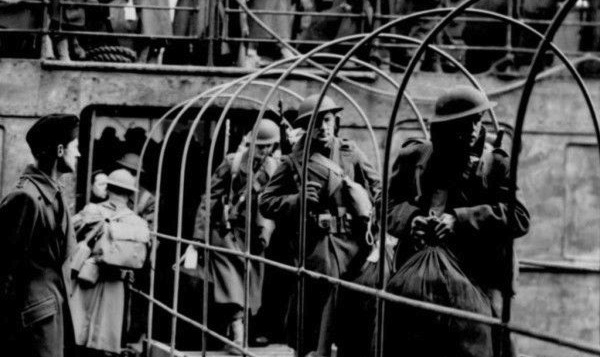
’A Ludicrous Scheme’


For most of World War I, the United States stood on the sidelines as Germany and the other Central Powers — Austria-Hungary, Bulgaria and the Ottoman Empire — battled for domination over the rest of Europe.
Pledging neutrality, the U.S. sought to maintain its policy of leaving European affairs to the Europeans. That philosophy changed, however, 100 years ago today when President Woodrow Wilson did an about-face and urged Congress to declare war on Germany. That declaration was made on April 6, 1917.
But what prompted Wilson to change his mind so dramatically? According to UC Santa Barbara historian Kenneth Hough, a number of factors came into play.
Oddly enough, it was partly prompted by a “ludicrous scheme” that involved Germany aligning with Mexico to invade and occupy southwest America, Hough said. In March 1917, the report was splashed across the front pages of American newspapers, triggering enormous public outrage.
The outlandish story stemmed from what is now a notorious letter written by German foreign secretary Arthur Zimmermann. In January 1917, British intelligence code breakers — in the office known as “Room 40” — intercepted his encrypted message intended for Heinrich von Eckardt, the German ambassador to Mexico.
Zimmermann gave Von Eckardt the following directions: If the U.S. entered the war on the side of the Allies, Von Eckardt was to approach Mexico’s president with an offer to forge a secret wartime alliance; the Germans would provide military and financial support for a Mexican attack on the U.S.; and Mexico would be free to “annex” lost territory in Texas, New Mexico and Arizona.
Hough noted that before news of the plot erupted — thanks to the British sharing their intelligence with Wilson — many Americans were committed to a policy of isolationism. After all, Wilson had just won reelection on the platform “He kept us out of war.” But the Zimmermann cipher signaled German aggression and created a national uproar.
It was the last straw in a long line of blows, according to Hough. Americans already were upset by the loss of American lives and ships, which were sunk by German submarines and mines in the ocean off Great Britain. And public sentiment only got worse when the Germans torpedoed the Lusitania, a British ocean liner en route from New York to Liverpool, England. About 1,100 passengers perished, including more than 120 Americans.
With America up in arms, President Woodrow Wilson determined that the U.S. had to “make the world safe for democracy.” The decision resonated around the world.
According to Hough, the true impetus to peace was the threat of American involvement — with its commitment of 2 million troops. German soldiers, who were weak and starving, realized their fight was doomed by the massive influx of United States forces, he said.
Once in the war, Wilson saw a path to pursue his true ambition. “In Wilson’s mind, it meant that the U.S. would have a major voice at the peace conference following the end of the war,” said Mary Furner, a professor in the Department of History. Wilson wanted to plant the seeds for his “peace without victory” concept — negotiating solutions to conflicts to avoid future wars.
WWI ended with the armistice on Nov. 11, 1918.
While truly horrible, the war did generate economic benefits for the U.S, according to Furner. It ended a prewar recession and generated full employment; thousands of African Americans moved north to work in defense plants; more women joined the workforce; and unions won the right to bargain under the supervision of the War Labor Board and successfully established eight-hour work days and time and a half pay for overtime.
Through it all, Wilson and others realized that oceans no longer protected the U.S. and no place in the world was safe from mechanized warfare, said Hough, who teaches ethics in the College of Engineering.
“Maybe more fundamentally, it was believed that the ways wars end are important too,” he added. “Germany and Japan were thoroughly destroyed at the end of World War II, but the U.S. and her allies recognized the need to rebuild and reform those powers, in addition to punishing them for war crimes.”



